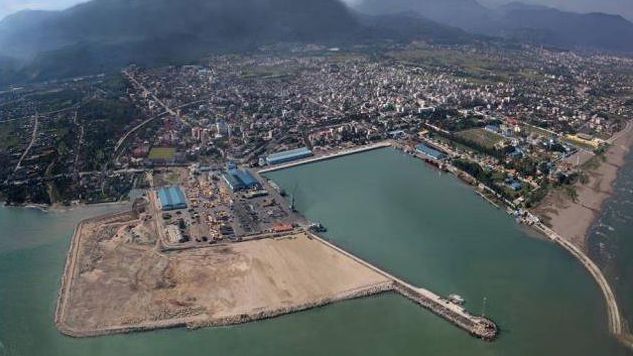LAHORE: In a bid to reduce its dependence on Pakistan, Afghanistan has shifted 80 per cent of its cargo traffic from Pakistan’s Karachi seaport to Iran’s Chabahar and Bandar Abbas ports. The move caused in part by a new trade tariff imposed by Pakistan comes barely two months after the inauguration of Iran’s Chabahar Port.
Chabahar being Afghanistan’s closest link to the Indian Ocean is expected to get a larger share of Afghanistan’s trade in the future. According to Asia Times, $ 5 billion worth of Afghan trade will be conducted solely through the tripartite Chabahar Port, sponsored jointly by India, Iran, and Afghanistan, once it starts feeding the International North-South Transport Corridor (INSTC).
“Afghanistan is no longer dependent on Pakistan for the shipment of goods as it can now use Iran’s Chabahar Port for this purpose, said Afghan Chief Executive Abdullah Abdullah while talking to the media in November last year indicating the impending move.
In the current fiscal year, the trade volume between Pakistan and Afghanistan that stood at $ 2.5 billion has fallen to $ 500 million due to deteriorating relations between the two countries.
On the other hand, Afghanistan’s trade relations with India seem to be moving in the right direction. “On a reciprocal basis, Afghanistan opened a second aerial corridor for India, enabling India to establish a direct trade link between Mumbai and Kabul. The first flight took 40 tonnes of dried and fresh fruits and medicinal herbs to India through the aerial route,” said Pakistan Afghanistan Joint Chamber of Commerce and Industry (PAJCCI) Director Zia Ul Haq Sarhadi while talking to Asia Times.
The loss of Afghanistan’s cargo trade is expected to adversely affect the Pakistani economy that is already facing a widening trade deficit and worsening balance of payments. According to Pakistan Bureau of Statistics (PBS) figures, in the five months (July to November 2017) Pakistan’s trade deficit increased to $ 15.03 billion, mainly because of a 16.4 per cent increase in CPEC related imports compared to the previous year. The figure is expected to hit $ 35 billion by the end of fiscal 2017-18 if growth remains stagnant.
The widening trade deficit has also put pressure on the country’s foreign reserves which are gradually shrinking. A potential economic crisis looms as the reserves are estimated at around $ 14.66 billion with Pakistan expected to make foreign debts servicing payments by the end of June 2018.
“It is unfortunate that trade under CPEC is facilitated by the government and Afghan transit and bilateral trade is totally ignored,” Sarhadi further said.
The current situation calls for Pakistan to re-evaluate its priorities. While CPEC promises much for the future, the country’s high-ups need to assess the impact of their current policies on the overall economy and make needed adjustments.
























